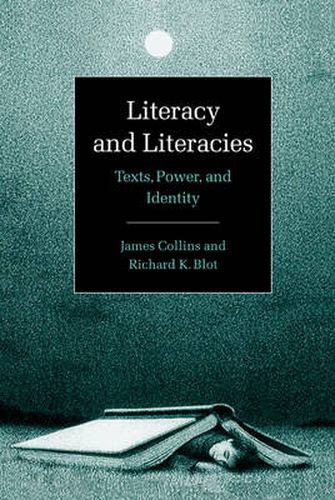Readings Newsletter
Become a Readings Member to make your shopping experience even easier.
Sign in or sign up for free!
You’re not far away from qualifying for FREE standard shipping within Australia
You’ve qualified for FREE standard shipping within Australia
The cart is loading…






Literacy and Literacies is a new and engaging account of literacy and its relation to power. The book develops a new synthesis of literacy studies, moving beyond received categories, and exploring the domain of power through questions of colonialism, modern state formation, educational systems and official versus popular literacies. Collins and Blot offer indepth critical discussion of particular cases and discuss the role of literacies in the formation of class, gender, and ethnic identity. Through their analysis of two domains - those of literacies and power, and of literacies and subjectivity - they challenge received assumptions about literacy, intellectual development and social progress and argue that neither ‘universalist’ nor ‘particularist’ accounts offer satisfactory approaches to the phenomenon. This is the first sustained exploration of the domain of power in relation to literacy. It will be welcomed by students and researchers in anthropology, linguistics, literacy studies and history.
$9.00 standard shipping within Australia
FREE standard shipping within Australia for orders over $100.00
Express & International shipping calculated at checkout
Literacy and Literacies is a new and engaging account of literacy and its relation to power. The book develops a new synthesis of literacy studies, moving beyond received categories, and exploring the domain of power through questions of colonialism, modern state formation, educational systems and official versus popular literacies. Collins and Blot offer indepth critical discussion of particular cases and discuss the role of literacies in the formation of class, gender, and ethnic identity. Through their analysis of two domains - those of literacies and power, and of literacies and subjectivity - they challenge received assumptions about literacy, intellectual development and social progress and argue that neither ‘universalist’ nor ‘particularist’ accounts offer satisfactory approaches to the phenomenon. This is the first sustained exploration of the domain of power in relation to literacy. It will be welcomed by students and researchers in anthropology, linguistics, literacy studies and history.